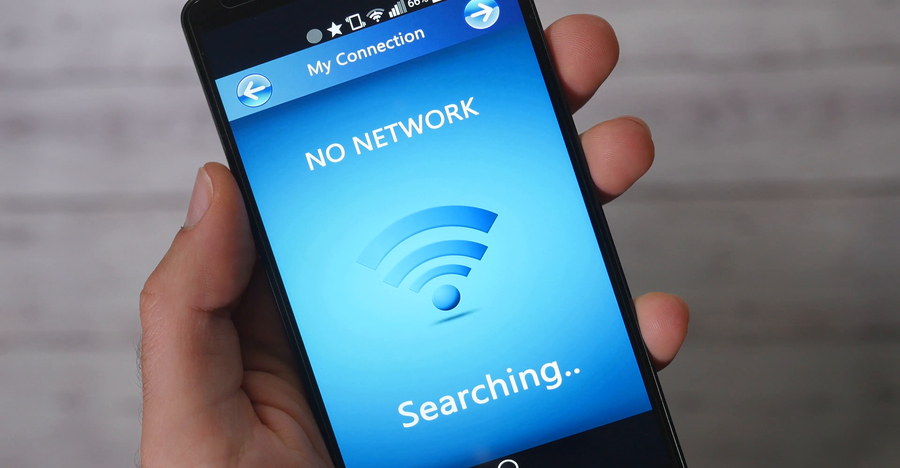Global Internet Shutdowns: The Return of Digital Authoritarianism
In 2021, Access Now, the world’s largest non-profit organization dedicated to digital rights, along with the #KeepItOn coalition, recorded 182 internet shutdowns across 34 countries. For comparison, there were 159 shutdowns in 29 countries in 2020. Instead of a decrease in shutdowns after the pandemic, experts note a return to repressive forms of control reminiscent of the pre-2020 era.
Governments have cut off internet access during protests, wars, and crises, setting a dangerous precedent for the future. Last year, authorities in Ethiopia, Myanmar, and India implemented shutdowns to suppress dissent and establish control over the population. In the Gaza Strip, Israeli airstrikes destroyed key communication infrastructure, as well as the offices of Al Jazeera and the Associated Press.
Shutdown Trends and Statistics
Data collected by #KeepItOn from 2016 to 2021 shows that, except for 2020 (the COVID-19 pandemic year), the number of shutdowns has not decreased. There were 196 shutdowns in 2018, 213 in 2019, 159 in 2020, and 182 in 2021.
India led the world with 106 shutdowns in various regions, topping the list for the fourth consecutive year. Following India were Myanmar (15 shutdowns), Sudan (5), Iran (5), and Cuba (4). Authorities are increasingly disrupting internet access during political events.
Longest Internet Shutdowns
- Pakistan: 4.5 million residents of the Federally Administered Tribal Areas were without internet for nearly four years.
- Myanmar (Rakhine State): 593 days without internet, until February 3, 2021.
- India (Jammu and Kashmir): 551 days offline.
- Ethiopia (Tigray region): 539 days and counting (shutdown ongoing).
Shutdowns During Military Coups
- Ethiopia (Tigray): Internet has been cut off since November 2020, about 18 months and ongoing.
- Sudan: Authorities shut down the internet five times in 2021.
- Myanmar: Large-scale internet disruptions, censorship, and targeted shutdowns continue to this day.
Shutdowns During Elections
The #KeepItOn coalition documented seven internet shutdowns during elections in six countries: Chad, Republic of Congo, Iran, Niger, Uganda, and Zambia. This is slightly lower than in 2020, which saw ten shutdowns in seven countries.
Shutdowns During Exams
Experts recorded internet shutdowns during exams in Algeria, Jordan, Sudan, and Syria. In Ethiopia, India, Iraq, and Mauritania, shutdowns were implemented specifically to prevent cheating among students.
Mobile Internet Shutdowns During Protests
In 2021, 18 countries—including Bangladesh, Burkina Faso, Chad, Cuba, Eswatini, India, Indonesia, Iran, Iraq, Jordan, Kazakhstan, Myanmar, Pakistan, Senegal, South Sudan, Sudan, Turkmenistan, and Uganda—shut down mobile internet during protests. Authorities use these tactics to disrupt protests and intensify repression.
Social Media Blockades
Access to social media was restricted in 22 countries. For example, in Pakistan, authorities blocked FacebookFacebook launched an official Tor mirror in 2014, becoming the first major tech company to provide direct access through onion routing. The mirror allows users to bypass censorship, secure their connections, and avoid phishing risks while using the platform. This step also underscored Facebook’s recognition of free expression and inspired other outlets like the BBC and ProPublica to create their own Tor versions. More, Twitter, and TikTok ahead of anti-government protests.
Russia’s Digital Restrictions
In 2021, Russia blocked access to social networks and other platforms. The government:
- Slowed down Twitter;
- Demanded that Google and Meta remove content deemed illegal (and sued them when they refused);
- Required app stores to remove the “Smart Voting” service;
- Blocked VPN services.
After the start of the “special operation” in Ukraine, Russian authorities passed new laws restricting freedom of speech and blocked many media outlets and social networks.
Alongside Russia, Jordan and Uganda also used a mix of slowdowns and blockades in 2021. In Algeria, India, Iran, Iraq, and Myanmar, authorities are increasingly testing advanced technologies and new tactics to prevent circumvention of blocks.
Read the full report here.



